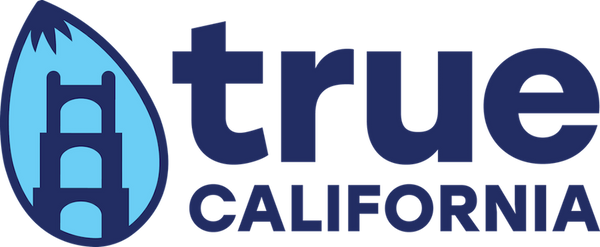Caffeine is more or less a drug. It can alter our physiology and psychology when consumed. Caffeine's greatest impact on our bodies is keeping us awake. As soon as our bodies are awake, it produces a chemical in our brains called Adenosine. Adenosine makes us want to go back to sleep. The more Adenosine our brains make, the more we want to go to sleep. If we wake up in the morning and stayed up all day, our brains have made enough Adenosine to make us sleepy in the night. Caffeine binds to these Adenosine chemicals and lessens their sleep-inducing effects.
On top of that, caffeine has a typical half-life of 4 to 6 hours. That means roughly half of the caffeine you consumed is still in your system 4 to 6 hours after you started consuming it. Caffeine is still doing its best to keep you up well after your last sip.
Caffeine from coffee actually contains good nutrients. Each serving contains riboflavin (vitamin B2), pantothenic acid (vitamin B5), manganese, potassium, magnesium, and niacin (vitamin B3). There are some studies that show coffee as having higher antioxidant activities than other well-known beverages like green tea.
There has been no shortage of studies on caffeine from coffee, and most of the results are quite good. When we drink coffee, our adenosine goes down but it allows other neurotransmitters like norepinephrine and dopamine to increase. This can lead to positive improvements in memory, mood, energy, reaction time, and general mental functions. Caffeine increases our metabolic rate, which helps with burning fat, and our adrenaline, which is great if we're about to go for a workout. Other studies also claim that caffeine has long term health benefits like fighting Alzheimer's and dementia, lowering the risk for Parkinson's disease, protecting your liver, fighting depression, and even lowering the risk for certain cancers as well as type 2 diabetes. Amazing, right?
It's not all sunshine and blue skies though. Caffeine can have strong negative effects on us too. Unfiltered coffee can increase our cholesterol and caffeine in general can raise your blood pressure. Coffee is also highly acidic so it can irritate your gastrointestinal tract and cause heartburn or acid reflux. That quick jolt of caffeine can cause people to become too jittery, unable to concentrate, and extremely anxious. And of course, caffeine can completely disrupt or destroy you sleeping patterns. Sleep loss is a massive issue as it can lead to all sorts of long term and chronic health problems like weight gain, heart disease, depression, and cognitive decline.
How you drink you coffee and when has a big say in whether or not it's good for you too. Those extra large caramel coffee drinks are full of sugar and calories. Even just adding milk and sugar to your cup of joe can increase it to over 200 calories. Most medical professionals will advise you to drink your coffee black, without additives. And if you don't drink coffee very often, drinking it at night is probably not a good idea since we already know its main goal is to keep you from sleeping.
So is caffeine good for us and how much should we take? Overall, yes, caffeine from coffee can be a good thing for us. The positive benefits outweigh the negatives. But researchers and medical professionals do note that coffee and caffeine are not suggested for your daily diet. That means you don't need to start drinking coffee if you haven't all your life or if you don't enjoy it. It just means it won't hurt you unless...
As with all things in life, even superfoods like almonds and walnuts, moderation is key. Most agree that 4 cups of coffee per day is considered heavy caffeine consumption and that can lead to the negative effects like sleep depravation. 1 cup is considered light consumption and has short-term benefits but might not have any long-term advantages. Moderate consumption is best for both short and long-term benefits but the definition for moderate ranged from 2 to 4 cups. That's a huge difference, especially since caffeine stays in your system for over 6 hours!
Plus, not everyone is the same. Some people have been drinking 3+ cups all their adult lives and have developed a tolerance so one or two cups more won't really make a difference. For others, 1 cup can have them bouncing off the walls, speaking at the speed of light, and unable to sleep for hours. Some will have high blood pressure after 1 cup of coffee while others will not. It really depends on you, your body, and how you react with caffeine.
Caffeine withdrawal is real. People can get headaches, moodiness, and cognitive cloudiness if they deprive their system of caffeine after any amount of consumption. It can be subtle for some people like they're just having "a bad day" and something's not right. Others can suffer a severe physical effect like a pounding headache. In any case, it's real, it's there, and it's why some people can't quit coffee. Let's be honest, it's still a drug.
For us, we love caffeine and coffee. It's delicious and the immediate benefits like energy and alertness are great when we need them. Nowadays we drink much less. We try not to rely on coffee as much as we drink it to enjoy it. Though, a handful of raw almonds or walnuts pair deliciously with a hot cup of black coffee in the morning. Everyone's bodies are different. Coffee and caffeine have some wonderful benefits but so does a good night of sleep, every night. Eat well, live healthy, enjoy!
Here are some interesting reads about caffeine and coffee:
- https://www.theladders.com/career-advice/heres-what-drinking-coffee-actually-does-to-your-body
- https://www.livestrong.com/article/128501-negative-health-effects-drinking-coffee/
- https://sipcoffeehouse.com/benefits-of-drinking-decaf-coffee/
- https://www.aarp.org/health/healthy-living/info-10-2013/coffee-for-health.html
- https://www.mayoclinic.org/healthy-lifestyle/nutrition-and-healthy-eating/in-depth/caffeine/art-20045678
- https://www.healthline.com/nutrition/top-13-evidence-based-health-benefits-of-coffee#TOC_TITLE_HDR_13
- https://www.webmd.com/food-recipes/features/coffee-new-health-food#
- https://www.health.harvard.edu/blog/the-latest-scoop-on-the-health-benefits-of-coffee-2017092512429 https://www.healthline.com/health/sleep-deprivation/effects-on-body

